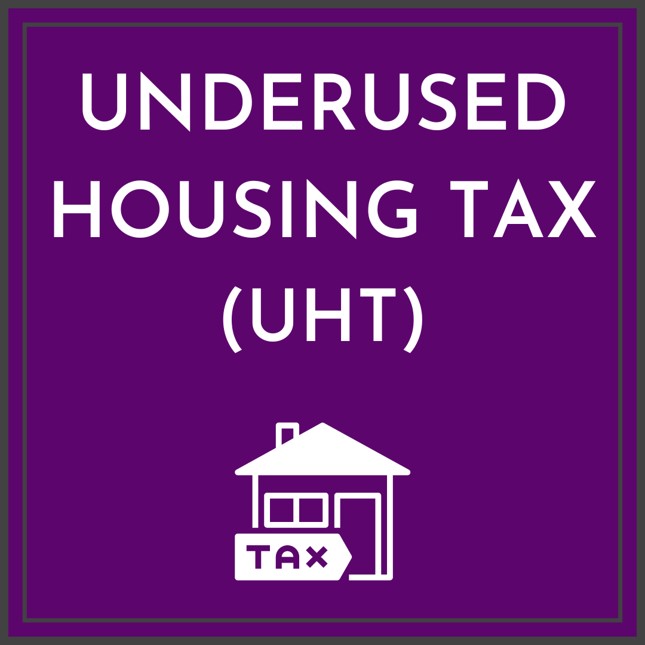SHARON'S CORNER
Tax season has come and gone once again and summer is upon us. Looking forward to our summer hours plus more time to write blogs, catch up on professional development and of course, enjoying the sunshine.
A couple new blogs since my last newsletter including 5 Reasons Your Teenager Should File Taxes. Eager to learn about something accounting or tax related? Let me know and it might be turned into my next blog.
Have a question? Email or call us. And remember to check out our blogs, checklists and social media pages for more information on all things small business, tax, accounting and the Tri-Cities community.
BUDGET 2023: Top Five Items For Owner-Managers
Budget 2023 (A Made-in-Canada Plan: Strong Middle Class, Affordable Economy, Healthy Future) was introduced in the House of Commons on March 28, 2023. The top five changes that may impact individuals and owner-managed businesses are as follows:
- Dental Plan – The Canadian Dental Care Plan would be introduced to provide coverage for all uninsured Canadians with an annual family income of less than $90,000 (the previous Canada Dental Benefit only provided benefits for children under 12) by the end of 2023. Benefits would be reduced for families with income between $70,000 and $90,000.
- Green Investments – New and expanded green investment tax credits for businesses, including for clean electricity at 15%; clean hydrogen ranging from 15% to 40%; clean technology manufacturing at 30%; and expansion of the clean technology investment. Labour requirements, including wage levels and apprenticeship training opportunities, would need to be met to receive the full amount for most business credits.
- Intergenerational Business Transfers – In the summer of 2021, rules were introduced that allowed individuals to benefit from the sale of their corporation to a child’s corporation in the same way as a sale to a third party. Previously, such transfers to a child’s corporation would result in a capital gain being converted into a more highly taxed dividend and also prevent the usage of the capital gains exemption. Budget 2023 proposed amendments to limit the 2021 rules by adding specific eligibility requirements focused on the transfer of ownership, management and control of the business. The proposals would take effect in 2024.
- Employee Ownership Trusts (EOTs) – Rules were proposed to better facilitate employees buying their employer through a trust. Proposed to be effective in 2024, these rules would provide business owners with an additional exit strategy, where for example, a third-party buyer or transition to a family member is not feasible or desired.
- Alternative Minimum Tax (AMT) – The AMT is an alternative method of calculating taxes that ensures that an individual pays a minimum amount of tax even if they would not have a tax balance under the normal system due to using one or more tax advantages. Budget 2023 proposed to modify the AMT rules to better target wealthier individuals. The standard exemption from this tax would be increased from $40,000 to approximately $173,000; however, the tax rate would be increased from 15% to 20.5%. In addition, many of the deductions and credits currently allowed to reduce AMT would be eliminated or restricted. These changes would be effective for the 2024 tax year.
ACTION: If you are significantly affected by, or could benefit from, any of these changes, reach out for more information and assistance.
TFSA: Carrying On A Business Within It
Earnings in a TFSA are typically not taxable. However, earnings in a TFSA become taxable when they are earned from carrying on a securities trading business.
In a February 6, 2023 Tax Court of Canada case, CRA had assessed the TFSA on the basis that it was carrying on a business and was therefore taxable on its income for the 2009 through 2012 taxation years. The TFSA holder was a professional investment advisor who had engaged in aggressive trading in non-dividend-paying speculative penny stocks, all of which were qualified investments. The total income assessed was $569,481, earned from annual contributions of $5,000 in each of 2009,2010 and 2011.
The taxpayer argued that the TFSA should be treated in the same manner as an RRSP and not taxed on income from a business of trading in qualified investments. The taxpayer further argued that the traditional tests used to determine whether a business of trading in securities was being carried on were inappropriate for application to TFSAs. The taxpayer referred to an earlier Court case that had suggested registered accounts trading in qualified investments are not carrying on a business.
Taxpayer Loses
The Court noted that TFSAs are one of several statutory schemes, each with its own detailed provisions. Their components are not interchangeable. In comparing TFSAs to RRSPs specifically, the Court cited ten significant differences between the two schemes other than the treatment of business income.
The Court further noted that the judicial test for carrying on a business of securities trading was well established when TFSAs were introduced in 2008 and would have been known to Parliament when they legislated taxation of income from carrying on a business in a TFSA. This indicated that the existing test was considered appropriate for this purpose.
Parliament provided that income earned from carrying on a business within a TFSA would be taxable to the TFSA. If Parliament intended to exclude a business of trading qualified investments, it would have included the same exception provided for RRSPs.
The TFSA, directed by its holder, traded frequently, had an extensive history of buying and selling shares that were speculative in nature and held the shares for short periods. The holder was a knowledgeable and experienced investment professional and spent considerable time researching securities markets. There was no doubt that the TFSA carried on a business of trading qualified investments throughout the period at issue.
ACTION: Carrying on a business of trading securities in a TFSA leads to full taxable income inclusion rather than tax-free amounts. Caution should be afforded when considering such activities.
UNREPORTED CAPITAL TRADES INCLUDED ON A T5008: CRA Policy
Traders or dealers in securities must report to CRA the disposition of securities, such as publicly traded shares, mutual fund units, bonds and T-bills, of their clients on a T5008. A November 4, 2022 French Federal Court case summarized CRA’s administrative policy where a taxpayer has not filed a tax return, but a T5008 was issued, reporting the disposition of property that does not include the cost of the property disposed. In this case, CRA will assess the taxpayer with unreported income by estimating the capital gain to be a percentage of the total proceeds of disposition based on the stock market performance for the year in question (details on how the calculation was made were not provided in the Court case).
In 2015, CRA applied this policy and assessed the taxpayer for his 2008 year with a $967,806 capital gain (taxable capital gain of $483,903) computed as 20% of all proceeds of disposition reported on the T5008. CRA assessed the taxpayer’s income for 2009 at $141,798. The taxpayer did not object to either of these assessments.
In 2019, the taxpayer filed his 2008 and 2009 returns reporting much lower income than CRA had assessed in 2015. As the 2008 return was filed (essentially requesting adjustments to the original assessment) more than 10 calendar years after the end of the year (December 31, 2008), no adjustments could be made to this year. The taxpayer relief provisions only allow an individual to request an adjustment up to ten calendar years after the relevant year. As such, CRA confirmed their 2015 assessment.
The taxpayer then tried to argue that the excess of capital gains assessed by CRA over his actual gains for 2008 should be treated as a capital loss carried forward to offset his gains realized in 2009. CRA refused to reassess the 2009 return for this adjustment.
Taxpayer Loses
The Court found that the taxpayer could not indirectly reduce the impact of the capital gain on his 2008 return by claiming a capital loss on his 2009 return.
Editors’ Comment
It is typical for brokers not to include the cost base of securities disposed on the T5008 as they may not have the accurate information. Also, even if an amount is reported on a T5008, the transaction may not always result in a gain; some dispositions may be in a loss or break even position. For example, money market fund dispositions are often reported; however, there is normally no gain or loss.
ACTION: Ensure to report all gains from the disposition of securities fully; should dispositions not be reported, CRA may assess the taxpayer with unreported income much higher than the actual gain.
EMPLOYMENT EXPENSES FOR COMMISSIONED EMPLOYEE: Sponsorship
In a January 23, 2023 French Court of Quebec case, a commissioned salesperson deducted nearly $600,000 over 2015 and 2016, in sponsorship expenses of a professional cycling team in Canada. The individual was an investment advisor and reported commission income of $1,493,910 and $1,263,360 and taxable capital gains of $2,276,374 and $99,767 in the respective years.
The taxpayer argued that the sponsorship promoted his services as an investment advisor. As the main sponsor of the cycling team, the taxpayer explained that he benefited from enhanced visibility, as follows:
- the taxpayer’s name was in large letters on the front of the cyclists’ jerseys, on both sides of the cyclists’ shorts and on the team’s cycling shoes;
- the investment institution’s name and logo were on both the front and back of the cyclists’ jerseys; and
- the team’s website (www.silberprocycling.com) incorporated the taxpayer’s name (Silber) into the website domain.
The Court noted that neither the taxpayer nor any of his family members benefited from the cycling team’s equipment, advice or products.
The Minister argued that the sponsorship expenses were unrelated to the taxpayer’s employment as a commissioned salesperson and that the expenses were unreasonable.
Taxpayer Wins
The Court found a sufficient link between the advertising from the sponsorship and the taxpayer’s investment advisory services from which he generated his commission income. In addition, the Court opined that the taxpayer’s sponsorship expenses constituted a much lower portion of his total income (e.g. 5% for 2015) than in other cases. For example, in a 2010 case, the Court found that employment expenses constituting 65% of the taxpayer’s income were reasonable. The deduction was allowed.
Editors’ Comment
The scope of deductible commission employment expenses is much broader than for non-commission employment expenses. Expenses incurred to earn commission income are deductible provided that they are not specifically prohibited (for example, personal expenses or payments that reduced a taxable employment benefit) and provided that the other standard conditions for deduction are met. In contrast, only expenses specifically listed as deductible in the Income Tax Act can be deducted against non-commission employment income.
ACTION: The rules surrounding deducting expenses against employment earnings are complicated. Care should be afforded before incurring expenses intended to be deducted against employment income.
UNDERUSED HOUSING TAX (UHT): Increased Disclosures & Taxes
UHT is a 1% federal tax intended to apply to the value of vacant or underused residential real property owned by non-resident non-Canadians. However, many Canadian individuals and other entities are also required to file UHT returns and may even be liable for the tax. Numerous exemptions from the tax itself exist, but significant penalties can apply where the required return is not filed, even if no tax is payable.
UHT was first applicable to the 2022 year, with the first filing deadline being April 30, 2023. However, CRA recently announced (March 27, 2023) that penalties and interest for the 2022 calendar year will be waived for any late-filed UHT return and any late-paid UHT payable, provided the return is filed or the UHT is paid by October 31, 2023. The late filing penalties start at $5,000 for individuals and $10,000 for corporations.
In general, UHT returns must be filed by all persons (which include both individuals and corporations) that are on title of a residential property on December 31 of each year, unless that person is an excluded owner. No tax is applicable if there is no filing obligation.
From an individual perspective, the only excluded owners are Canadian citizens and permanent residents. However, individuals that are on the title of a property in their capacity as a trustee of a trust, or a partner of a partnership, cannot be excluded owners, even if they are Canadian citizens or permanent residents.
From a for-profit corporate perspective, the only excluded owners are public corporations (i.e. listed on a Canadian stock exchange). That is, a private Canadian corporation is not an excluded owner.
Even if a filing obligation exists, an owner may still benefit from one of fifteen exemptions from the tax liability. The exemptions broadly fit into four categories: type of owner; availability of the property; occupant of the property; and location and use of the property. Even though the exemption eliminates the tax, the person still has a filing obligation. The exemptions are listed in Parts 4 through 6 of the UHT Return and Election Form (UHT-2900).
Some of the more common questions and concerns related to the UHT are noted below.
Is my property a “residential property”? In general, a “residential property” is a property that contains a building with one to three dwelling units under a single land registry title. A unit is considered a dwelling unit if it contains private kitchen facilities, a private bath and a private living area. CRA provides various examples of properties that they view as residential properties in Notice UHTN1, such as: detached houses, duplexes, laneway houses, condominium units and cabins. Apartment buildings, commercial condominiums, hotels and motor homes would not be residential properties. Properties provided through accommodation platforms are likely residential properties (see Notice UHTN15).
How would an income-earning property (such as an Airbnb property or long-term condo rental) that is held by two or more individuals, such as a married couple, be treated? Although both individuals may be Canadian citizens or permanent residents, there is a possibility that the property is being held in their capacities as partners of a partnership. In that case, the individuals are not excluded owners. The analysis generally starts with determining whether the operating relationship for the income-earning activity constitutes a partnership, which can be complicated. In general, a partnership is a relationship between two or more people carrying on a business, with or without a written agreement, to make a profit. See Notice UHTN15 for guidance.
A parent or child is on title of a property for probate or mortgage purposes. Where a person is on title but is not a beneficial owner (such as where a relative is on title only for probate or mortgage purposes), they may be holding an interest in the property in their capacity as a trustee of a trust, even if no formal trust agreement is in place. As such, filing may be required even if the individual is a Canadian citizen or permanent resident. Professional advice may be required.
Properties sold before year-end. UHT may apply in respect of a property sold prior to December 31 if the applicable land title registry has not been updated by the year’s end.
Multiple returns to file. One return must be filed for each of the properties owned by the person, potentially resulting in multiple filings by a person. Likewise, if multiple persons are on title for a single property, each has their own filing obligation.
Private corporations that own residential property. Most private corporations that are on title of a residential property will have filing obligations, even if they are holding the property in trust and even if they are exempt from the tax liability.
Owner of residential property passes away. Usually, some time is needed to transfer title of a property from a deceased person to a beneficiary or executor/trustee of an estate. In cases where an individual has died but is still on title of the property, a filing obligation may still exist. However, if the owner was an excluded owner before their death, CRA has indicated that they will continue to consider them excluded after death. Where the property title has been transferred to a personal representative of the deceased (such as an executor), a special provision applies which allows the new holder to be an excluded owner for a limited period even though they are holding the property in their capacity as a trustee.
ACTION: Consider whether you or your corporation may have UHT filing or tax obligations.
SMALL BUSINESS SUCCESSION: Many Business Transfers Coming Shortly
The Canadian Federation of Independent Businesses (CFIB) released a report on January 10, 2023, focused on succession expectations for small businesses. It included the following survey responses:
- 76% of small business owners (constituting $2 trillion in business value) are planning to exit their business in the next 10 years;
- 9% have a formal business succession plan in place;
- obstacles to succession planning include:
- finding a suitable buyer (54%),
- business valuation (43%), and
- over-reliance of owner in day-to-day activities (39%);
- considerations that owners selling their businesses found to be very or somewhat important were:
- ensuring current employees are protected (90%),
- getting the highest price (84%), and
- finding a buyer who will carry forward their way of doing business (84%)
- business owners reach out to the following individuals to develop a succession plan:
- accountants (43%),
- lawyers (24%), and
- only themselves (39%);
- business owners plan to sell to the following persons:
- unrelated buyers (49%),
- family members (24%), and
- employees (23%).
There are many hurdles and opportunities in selling a business. Many can be addressed in advance, leading to significant improvements in the sale process and an increase in sale price. Often, several years are needed to position the business for sale or transition sufficiently, so planning should start as early as possible, even if the owner has not definitively determined if and when the sale will occur. In many cases, simply preparing for a sale can lead to increased profitability, efficient processes and reduced stress for the owner, such that they are in a better position even if they eventually decide not to sell.
ACTION: If you are considering selling or transitioning your business in the near to medium term, start planning now to ensure a smooth transition.
EMPLOYEE TIME THEFT: Some Challenges
A January 11, 2023 BC Civil Resolution Tribunal case addressed a claim for wrongful dismissal. The employer filed a counterclaim in respect of a 50-hour discrepancy between the employee’s timesheets and tracking software data over a period of about a month during which the employee was working remotely.
The employee argued that significant hours were spent working from hard copies; however, this was rebutted by records of printer usage and a lack of evidence of such work being uploaded to the employer’s electronic system. The Tribunal accepted the software evidence of time theft, and indicated that this was a “very serious form of misconduct” which justified the employee’s dismissal. The Tribunal further awarded the employer damages of over $2,600, plus interest, for the unaccounted-for time and an unrepaid advance.
ACTION: As employment work models shift, new employment-related challenges may arise.
TAX TICKLERS
- New federal rules have been proposed that would prohibit arrangements designed to restrict competition in the labour markets. These include, for example, wage-fixing arrangements intended to fix, maintain, decrease or control salaries, wages or terms and conditions of employment.
- Financial institutions began offering tax-free first home savings accounts in April. The plans are a valuable tool for first-time home buyers as contributions (up to $8,000/year and $40,000 over a lifetime) are deductible, while eligible withdrawals (including growth in the account) are not taxable.
- It is possible to borrow funds from your RRSP for various purposes, such as using the home buyers plan to assist in buying your first home and the lifelong learning plan to fund education and training.
**This publication is a high-level summary of the most recent tax developments applicable to business owners, investors, and high-net-worth individuals. This information is for educational purposes only. As it is impossible to include all situations, circumstances and exceptions in a newsletter such as this, a further review should be done by a qualified professional. No individual or organization involved in either the preparation or distribution of this letter accepts any contractual, tortious, or any other form of liability for its contents. For any questions… give us a call.
